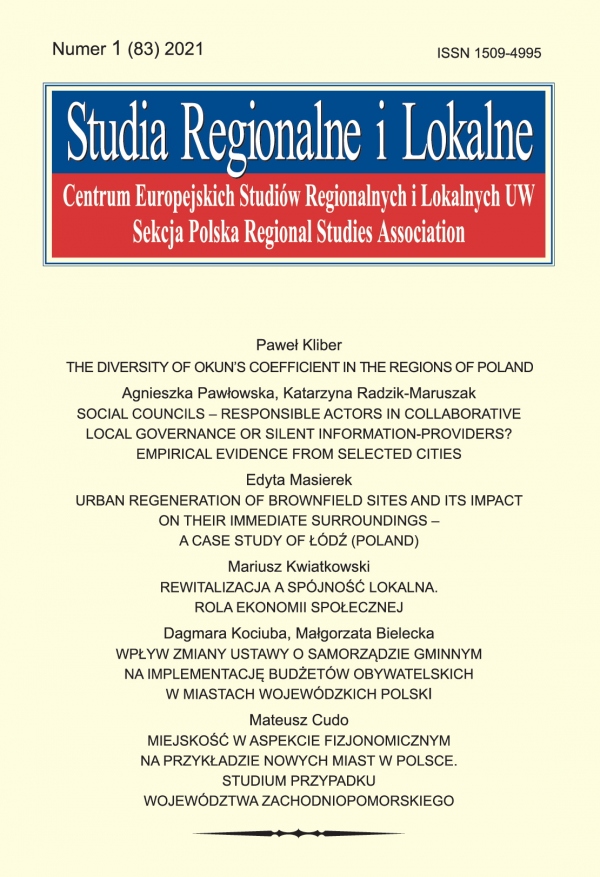Issue:
1(83)2021
Agnieszka Pawłowska, Katarzyna Radzik-Maruszak
Social Councils – Responsible Actors in Collaborative Local Governance or Silent Information-Providers? Empirical Evidence from Selected Cities
DOI: 10.7366/1509499518302
Social Councils – Responsible Actors in Collaborative Local Governance or Silent Information-Providers? Empirical Evidence from Selected Cities
Social councils (SCs) are local collegial actors formally created by local authorities as consultative bodies for different policy issues. The main objective of this article is to define the role of SCs in collaborative governance (CG). The paper is based on the quantitative research conducted in 65 Polish cities. The research is focused on the members of youth, senior citizen councils, and councils for residents with disabilities. The research results indicate that SCs meet many of the prerequisites of CG, however their potential to influence decisions and consensus seeking has not been entirely proven.
Affiliation:
Agnieszka Pawłowska: University of Rzeszów, College of Social Sciences, Institute of Political Science, Al. Kopisto 2a, 35-959 Rzeszów, Poland; ORCID: 0000-0002-0033-3833, University of Maria Curie-Skłodowska, Faculty of Political Science and Journalism, Institute of Political Science and Administration, Department of Public Administration, ul. Głęboka 45, 20-612 Lublin, Poland; ORCID: 0000-0003-2147-0872;
apawlowska@ur.edu.pl Katarzyna Radzik-Maruszak: University of Rzeszów, College of Social Sciences, Institute of Political Science, Al. Kopisto 2a, 35-959 Rzeszów, Poland; ORCID: 0000-0002-0033-3833, University of Maria Curie-Skłodowska, Faculty of Political Science and Journalism, Institute of Political Science and Administration, Department of Public Administration, ul. Głęboka 45, 20-612 Lublin, Poland; ORCID: 0000-0003-2147-0872;
katarzyna.radzik@umcs.pl 


